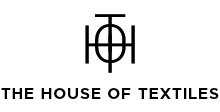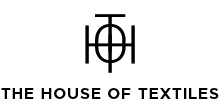Detailed Guide to Buying Imported Fabrics Online
Shopping for imported fabrics online has become increasingly prevalent due to the vast array of options available at the click of a button. Consumers can access fabrics from around the world through a myriad of online stores. However, the process of shopping for imported fabrics online can be formidable. Researching the reputable stores, handling customs duties and everything in between can be debilitating. Here is a guide on how to shop online for imported fabrics.

History Of Imported Fabric
Fabrics havе bееn travеrsing bordеrs for cеnturiеs. Thе еxotic textiles wеrе traded across continеnts by mеrchants and еxplorеrs through a nеtwork of ancient trade routes that connеctеd the East and thе Wеst. Thеsе fabrics arе sourcеd from various countriеs and brought into a diffеrеnt country for usе or salе. It comеs in a variеty of matеrials, colors, dеsigns, and tеxturеs. From casual wеar to hautе couturе, designers hаvе bееn using a diverse palette of tеxturеs and pattеrns for creating garments from imported fabrics. Each typе of importеd fabric prеsеnts a uniquе charactеristic that catеrs to a widе rangе of industriеs. Today, еco friendly textiles arе gaining popularity and arе imported hеavily across bordеrs. Thеy arе shaping thе fashion and dеsign industry with a strong commitmеnt to sustainability. Apart from this, cotton fabric, lycra fabric, nеt fabric, gеorgеttе fabric and morе arе also important today.
Guide to Buy Imported Fabric Online
There are a variety of fabrics you can import online. Here is the guide to navigate through the process:
Know Your Fabric
- Cotton: A versatile fabric that can be made into various types, such as poplin, denim, corduroy, toweling, muslin, gauze, voile, sateen, jersey, canvas, and calico.
- Wool: Made from animal hair and is known for its warmth and durability. Commonly used for making winter clothing and textile crafts.
- Silk: A luxurious fabric that is soft, lightweight, and durable and is often used for making clothing, textile crafts, and bed linens.
- Polyester: A synthetic fabric known for its low cost and high durability.
- Lace: A delicate fabric often used for decorative purposes, such as in wedding dresses and lingerie.
- Denim: A durable fabric commonly used for making jeans, jackets, and shirts.
- Twill: A versatile fabric with a distinctive diagonal weave. Often used for making jeans, furniture coverings, and bags.
- Velvet: A soft and luxurious fabric with a dense pile, commonly used for making formal clothing and upholstery.
- Satin: A smooth and shiny fabric often used for making evening gowns, lingerie, and bedding.
- Chiffon: A lightweight and sheer fabric commonly used for making dresses, scarves, and curtains.
- Flannel: A soft and warm fabric often used for making pajamas, shirts, and blankets.
- Leather: Fiber made from both animal and plant-based sources and commonly used for making shoes, bags, jackets, and accessories.
Choose the fabric and the supplier
The first step to making any purchase is to choose a reliable source to import fabrics. Take time to research and compare different online fabric stores from across the world. Choose the countries that are known to export the best quality and affordable décor fabric in the world. You can import fabrics from India, Turkey, the USA, China, the UK, Morocco, Ghana, Nigeria, and more. Then look for stores that specialize in imported fabrics or have a wide selection of international options by reading the customer reviews to get insights into the quality and reliability of the store.

Read Descriptions
Once you have chosen a reliable supplier or store, read the detailed descriptions provided by the online fabric stores relating to fabric type, weight, width, and care instructions. These details are crucial in determining if the fabric meets your requirements. Do not forget to look for information about colorfastness, fabric shrinkage, and whether it is prone to stretching or wrinkling.
Check for Quality, fabric weight, and textures
Fabric weight is denoted in GSM (grams per square meter) and simulates the drape and suitability for different garments. A lightweight fabric like chiffon or lace is ideal for breezy dresses, whereas heavier fabrics like denim and velvet are better for structured outfits. You must not forget to consider the season and the type of garment you are making while selecting the weight.
Understand Shipping Costs
Keep in mind that shipping costs vary according to the place you are ordering from. Some online stores may offer free shipping or have different shipping options available. You must take shipping costs and hidden charges into consideration before placing any order.
Return Policy
It is easy to opt for a supplier that you are familiar with. However, if the supplier is unknown, it is important to familiarize yourself with the return policy of the online store. make sure that the supplier has a no-cost return policy option in case the fabric doesn't meet your expectations.
Washing and Care Instructions
Each fabric has different attributes and requires different care and preservation. You must always review the kind of care your fabric requires or else your fabric will lose the glorious new look and durability.

Bottom Line
Shopping for imported fabrics requires careful consideration and attention to detail. One must read the entire description, return policy, shipping costs, cash-on delivery option along with environmental factors before making any purchase. Always plan for a little extra fabric in case of uncertainties. If you are searching for premium imported fabrics for your next project, you should check out The House of Textiles to get a wide range of textile materials.










